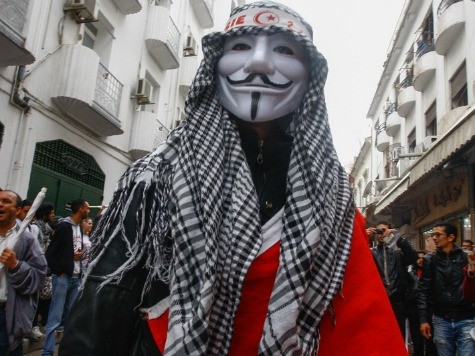Tunisia, the epicenter of the Arab Spring uprisings, is faced with the possibility of further domestic upheaval.
Egypt’s Muslim Brotherhood rule under currently-jailed former President Mohamed Morsi was short-lived, lasting a little over a year. In the aftermath of the recent military coup that bounced the Brotherhood from power, all eyes are set on the future of Tunisia.
The coup resulting in the fall of Morsi has left Tunisia the lone Islamist government in the region. The Brotherhood in Tunisia appears to be concerned that the citizenry feels the time is ripe for change at the top.
While it is unclear what direction the country is heading in, there are two likely pathways: Tunisia may become further Islamist-centric, meaning it would essentially lose its common distinction of being a “moderate” country, and more closely resemble the Wahhabi Saudi Arabian or Theocractic Iranian society.
To the contrary, many believe that Tunisia may follow suit with its close neighbor Egypt and overturn the Brotherhood in favor of a more secular and open governing structure.
TIME magazine’s Vivienne Walt has argued that a third scenario may apply: the Islamist-secular hybrid government currently in place is the best option, because instability may ultimately lead to turmoil and the resulting loss of innocent lives.
The American Interest
Which potential outcome is preferable to the interests of the United States? A more secular, free society would seem to best line up with the ideals that the U.S. stands for. However, the preference of the Obama administration’s foreign policy in the Middle East has not necessarily reflected our core beliefs at home.
The administration remained relatively silent during, and in the aftermath of, Iran’s “Green” movement in 2009 to protest the rule of Ayatollah Khamenei. To the contrary, the Obama White House has taken an active role in supplying munitions and resources towards the efforts of Islamist groups in Libya and Syria.
The Administration also developed close ties with the Muslim Brotherhood regime under Mohamed Morsi, and it was well-documented that top level administration officials frequently met with Brotherhood officials at the White House. If Tunisia is to fall into disarray, which side the Obama Administration will support remains unclear.
What Does Tunisia Want?
The answer may lie within the hearts and minds of the Tunisian people. Do they want to commit to a more Sharia-compliant lifestyle that in all likelihood will further restrict the rights of women, along with religious and ethnic minorities? Would they rather strive towards a more free, secular society in which individual rights and the rule of law is widely respected? Do they possibly foresee the government as something in between the two?
While maintaining the hybrid system could mean Tunisians simply prefer the status-quo, it also may relate to suggestions that Tunisia’s circumstances are not similar to Egypt’s, and there is simply not enough internal initiative to gather support in order to overthrow the government.

COMMENTS
Please let us know if you're having issues with commenting.